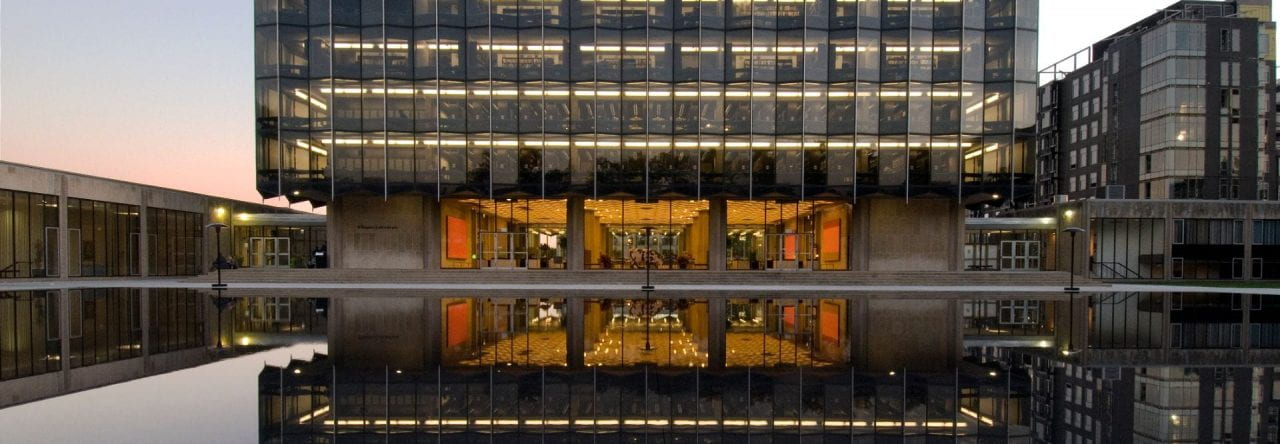By Rebecca Chong, ’23
When we think about “pro bono,” we typically think about working for public clients—whether that be in conjunction with a legal aid organization or even though a law firm. One activity that law students might not recognize as pro bono work is participating in mentorship programs involving students interested in pursuing a legal education or career. The Law School recognizes up to five hours of such mentorship to fulfill the pro bono pledge.
Participating as a student mentor is one of the most popular pro bono activities at the Law School. This year, 72 law students are participating in the UChicago Careers in Law (CIL) Mentorship Program. Hosted by the College’s Careers in Law office, the mentorship program pairs law students with undergraduate students interested in going to law school after graduation. Each quarter, the Office hosts a mentorship event where mentors and mentees can socialize and share experiences. Past mentorship events include: trivia night and resume/cover letter workshops. Mentors and mentees must also meet casually at least once a quarter, often over coffee or a meal. Being a mentor is not a huge time commitment, making it the perfect pro bono opportunity for 1Ls and upperclassmen alike.
We interviewed a few of our mentors to learn more about their experiences with the CIL Mentorship Program. Mary Salvi is a 2L student at the Law School and it is her first year as a mentor. Ryan Guo is a 2L student (and alumnus of the College) and a second-year mentor.
Why did you choose to be a mentor?
Mary: I chose to be a mentor to encourage others on their path to becoming a lawyer, especially given the stress and “unknowns” the prospect of attending law school brings. Law school is not for everyone and for this reason, it sometimes gets a bad rep. However, the educational opportunity is unparalleled in graduate studies. To “think like a lawyer” is a lifelong intellectual exercise that is quite intense. But being able give advice to others so they may accomplish something great or navigate a sticky situation is a rewarding vocation. There is also a lot you can do with a law degree—you are not limited to doing litigation or transactional law.
Ryan: Primarily, I wanted to pay all the help I’ve received forward. I have had a lot of fantastic mentors throughout college and during my career, and I know I wouldn’t be where I am today without each and every single one of them.
What does a typical meeting with your mentee look like?
Mary: My mentee and I meet for coffee, and it’s laid back and fun. It’s a chance for us to get to know each other. I try to give some insight on his career goals where he has a question or is seeking recommendations for how to go about something. But my main goal is to listen and be a sounding board who has his interests in mind.
Ryan: Generally, we sit down with a goal in mind, whether that’s to work through her resume, talk about summer internships, or chat about law school generally. She always has great questions prepared, and I try and answer them to the best of my ability while adding in details.
What is your most memorable moment as a mentor? What have you learned as a mentor?
Mary: My most memorable moment as a mentor was the first time I met with my mentee as well as another student seeking mentorship. Though from different backgrounds, we found a common interest in a career in law and discussed what each of us hoped to contribute to the field. It was an eye-opening experience to witness the different paths being a lawyer can take you. While much of the goals discussed may fit in a 15-year plan, rather than a 5-year plan, I enjoyed encouraging them to stop at nothing to achieve their goals. I am eager to follow their careers and help where I can. As a mentor I have learned the value of encouraging others, finding ways to be helpful, and sometimes just listening to build trust. Placing another’s interest at heart is just a small way I can “give back,” as I have benefited immensely from those willing to support me in my career.
Ryan: I think my most memorable moment is being able to meet my mentee in person after a year of speaking to her online. It was nice to be able to just grab coffee and chat, especially after such a long period of social distancing. I’ve learned a lot about myself and how much I enjoy working with people. It is gratifying to be able to see a mentee’s development, and I’m excited to be in a place in my life where I can offer others sound advice.
The Pro Bono Service Initiative supports students with an interest in performing pro bono work during their time at the Law School. The Initiative encourages all students to pledge 50 hours of service before graduating to aid vulnerable groups and communities, to hone tangible and intangible skills to round out their law school learning, and to experience hands-on legal work that will truly affect others. For more information about how to make the pledge and all things pro bono, visit the Pro Bono Service Initiative website here. As a reminder, the Law School recognizes only up to five hours of mentorship to fulfill the pro bono pledge.
For more information about joining the CIL Mentorship program, please contact Rebecca Chong (rebeccachong@uchicago.edu). We will be recruiting new mentors next Fall! Special thanks to Mary Salvi and Ryan Guo for their time during the interviews.
